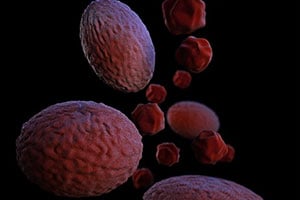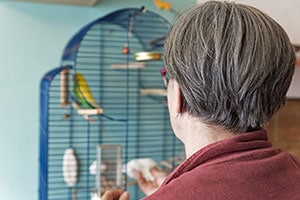Diagnosis, Treatment, and Complications
Although difficult to diagnose, there are tests to see if someone has psittacosis. With treatment, most people recover without serious complications.
Diagnosis
Symptoms of psittacosis are similar to many other respiratory illnesses. In addition, tests to detect the bacteria directly may not be readily available. For these reasons, clinicians may not suspect it, making psittacosis difficult to diagnose. CDC rarely receives reports of psittacosis.
Tell your clinician if you get sick after buying or handling a pet bird or poultry.
Clinicians can use a number of tests to determine if someone has psittacosis. These tests include collecting sputum (phlegm), blood, or swabs from the nose and/or throat to detect the bacteria.
Treatment
People diagnosed with psittacosis usually take antibiotics to treat the infection. Most people improve quickly if they start antibiotics soon after they get sick.
Complications
Most people treated properly for psittacosis make a full recovery. However, some people have serious complications and need care in a hospital.
Complications include:
- Pneumonia (lung infection)
- Endocarditis (inflammation of the heart valves)
- Hepatitis (inflammation of the liver)
- Inflammation of the nerves or the brain, leading to neurologic problems
With appropriate antibiotic treatment, psittacosis rarely (less than 1 in 100 cases) results in death.



